Andy Mukherjee
While India's domestic investment slump is likely to abate after the elections, the global economy will continue to pose a formidable challenge.
Narendra Modi may be able to fix India's ailing domestic economy, but it's the sorry state of world demand that will pose a bigger and more intractable challenge to the country's prime ministerial hopeful.
India's stock market is not only starting to price in a victory for the opposition leader in next month's poll, it's also anticipating that Modi will end the domestic investment slump fairly easily.
Equity benchmarks that track banks and machine and equipment manufacturers - both of which serve as proxies for investment - are up 13 percent since the beginning of March. The broader market has risen by just 4 percent over the same period.
Investors' hopes are not unfounded. Indian companies have already done quite a bit to shrink their balance sheets and cut debt.
The author is a Reuters Breakingviews columnist.
Challenges Modi will face to revive the economy
Image: Bombay Stock ExchangePhotographs: Reuters
As fewer loans go bad, state-owned banks will face less pressure to write off or restructure debts. That could signal a recovery in credit-fuelled investment, especially if a Modi victory makes it easier for companies and lenders to raise equity on the stock market.
Then there's cost of capital to consider. India's real interest rates, adjusted for producer price inflation, are now about 3.5 percent, a massive jump from their 2010-2012 average.
However, debt will become less expensive as the Reserve Bank succeeds in steadying runaway inflation expectations. That might take a few more months.
But if the central bank is able to start cutting rates again later this year it will help end India's investment drought. Lower borrowing costs will also boost demand for homes and autos. Additionally, if the next government can accelerate infrastructure projects, the private sector will have greater confidence to boost capital spending.
But while India's domestic investment slump is likely to abate after the elections, the global economy will continue to pose a formidable challenge.
...
Challenges Modi will face to revive the economy
Image: Exports losing steamPhotographs: Reuters
Start with exports, which did well for a few months last year due to the weak rupee but are now losing steam because world demand is too frail to provide a boost to suppliers in emerging markets.
Particularly worrying is the decline in India's engineering exports in February. Industry association EEPC says the fall may have had something to do with "drop in the value of renminbi being calibrated by the Chinese authorities."
While those concerns are overblown for now, Beijing's decision to widen the yuan's daily trading band against the U.S. dollar has raised fears that China might indeed prefer a cheaper currency. That could spell trouble for Indian exporters.
Meanwhile, lacklustre U.S. demand is having more immediate effects. Infosys, one of India's largest outsourcing companies, recently lowered its revenue guidance for the year because global technology firms aren't spending as much on computer software.
U.S. retailers, too, are responding to margin pressure by paring back their 2014 capital expenditure plans.
...
Challenges Modi will face to revive the economy
Image: The nation's current account deficit may rise.Photographs: Reuters
If India's exports keep losing steam but domestic demand revives, the nation's current account deficit, which has been artificially suppressed by the present government's crackdown on gold imports, may once again start to rise.
The gap between what India pays for imports, including energy, and what it earns from exports may also widen if the standoff between Russia and the West over Crimea keeps crude oil prices elevated.
Financing the deficit became a challenge for New Delhi last summer after the U.S. Federal Reserve said it would end its quantitative easing programme, reducing the worldwide supply of excess dollars.
Unless the general election produces a business-unfriendly outcome that prompts investors to take flight, a repeat of last year's rupee crisis is unlikely. The more likely scenario is the opposite: A surge in hot money inflows following a Modi victory, which will allow India to run higher trade deficits.
But euphoria about India's new government is unlikely to outweigh broader pessimism about emerging markets for long. The CBOE index for volatility in emerging market exchange traded funds - a good proxy for investors' nerves - is 49 percent higher now than in October last year.
...
Challenges Modi will face to revive the economy
Image: Supporters of Gujarat's chief minister Narendra Modi wear masks of Modi during a rally in Chennai.Photographs: Babu/Reuters
This isn't an environment in which Modi can consider pursuing a risky, high-growth strategy with short-term funds borrowed from foreigners.
To permanently lower the risk of a future balance-of-payment crisis, the new Indian government will need to implement a plan to boost the country's exports, a complicated task when the United States, which is still the world's most important source of demand, hasn't increased its imports for two years.
Modi's businessmen backers want the Indian economy to grow by 8 to 9 percent a year so they can boost revenue and earnings and reclaim the international adulation they enjoyed before 2008. Modi won't find that easy to deliver.
The financial crisis has made the global economy more treacherous. Indeed, a slowdown in China could tip a global economy already grappling with disinflation into outright deflation.
If that happens, India will feel some benefits. The current government's obsession with paying villagers to stay where they are has stunted the country's much-needed urbanisation drive.
...
Challenges Modi will face to revive the economy
Image: A tea stall vendor, who is a supporter of Bharatiya Janata Party, poses while wearing a mask of Narendra Modi, Gujarat's chief minister, in Kolkata.Photographs: Rupak De Chowdhuri/Reuters
If it gets underway, the steel, copper, aluminium and power required will cost less than in the early 2000s when a fast-growing China elevated the prices of all commodities. At the same time, though, global deflation will put Indian exporters' prices under pressure.
It would take a big surge in domestic labour productivity to counter that squeeze. One part of those productivity gains would compensate companies for their lack of pricing power; the other part would boost labour incomes.
In a difficult global environment, a sustainable expansion of India's economy can only come from productivity-driven increases in domestic employment and wages. And that means launching a bold reform programme.
A new credit binge could well end up becoming Modi's shortcut to growth. But with the world economy mired in stagnation, any artificial boost will run out of steam even more quickly than it did in the previous decade.

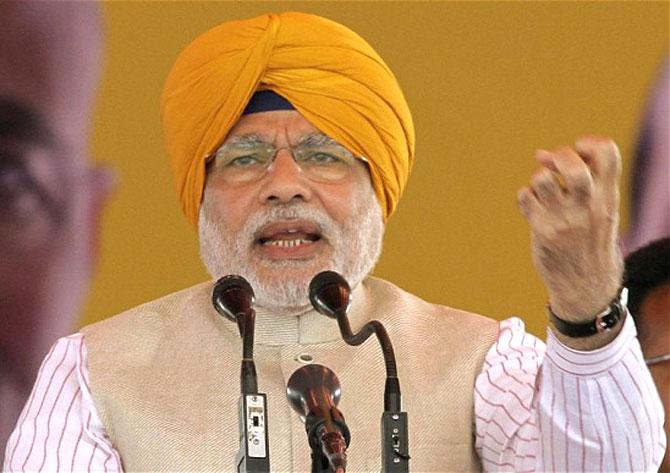
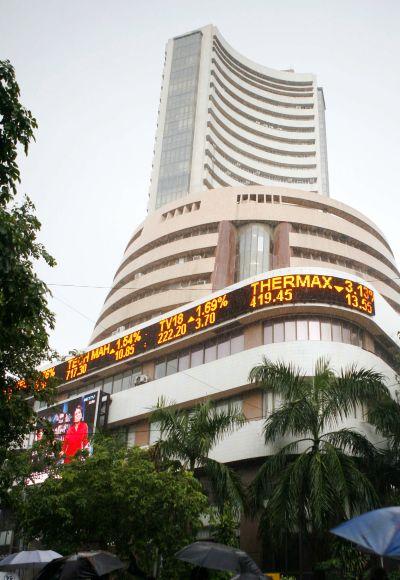
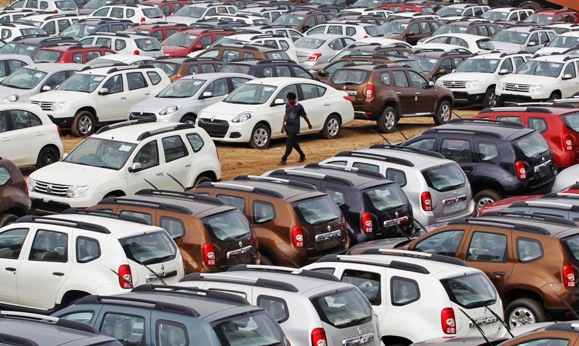
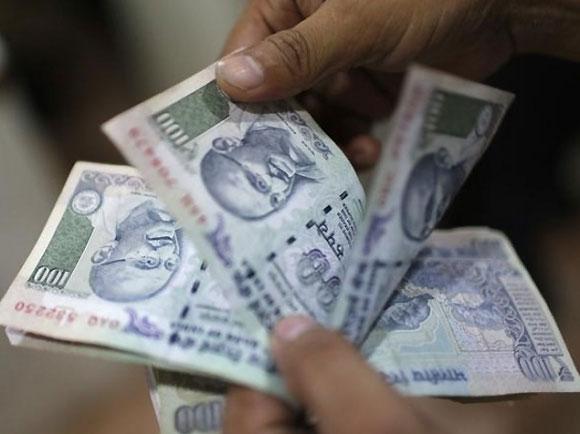
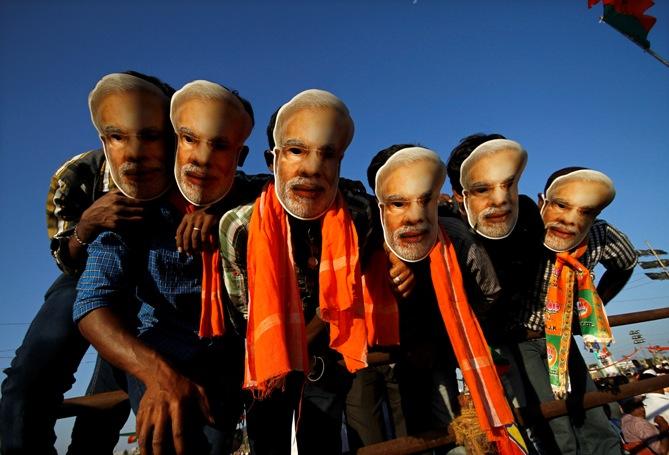
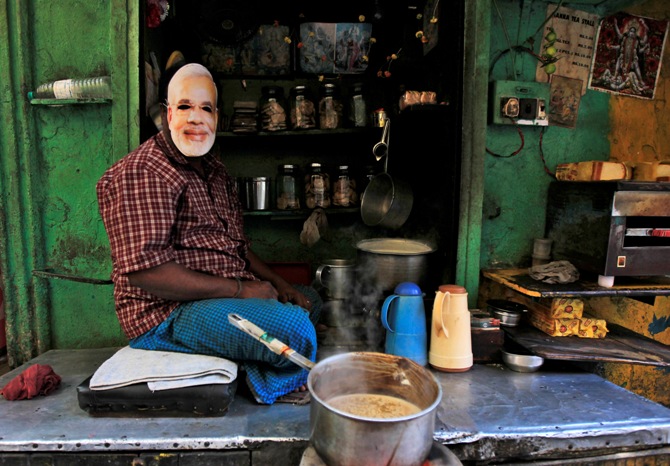

article